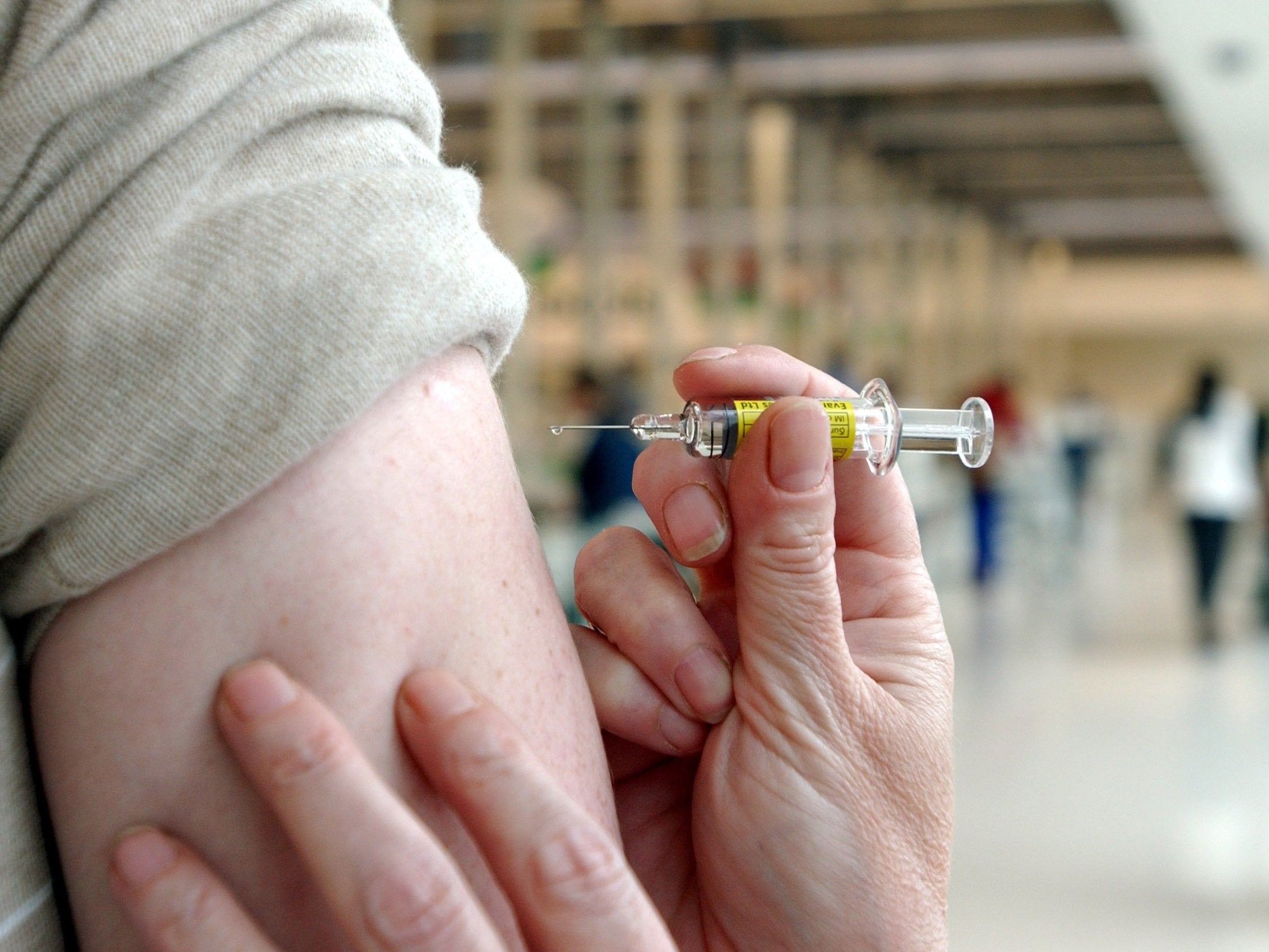Anti-vaccine movement 'a top threat to global health in 2019' says WHO
'Vaccine hesistancy' threatens to revervse progress on preventable diseases, UN health body warns

Your support helps us to tell the story
From reproductive rights to climate change to Big Tech, The Independent is on the ground when the story is developing. Whether it's investigating the financials of Elon Musk's pro-Trump PAC or producing our latest documentary, 'The A Word', which shines a light on the American women fighting for reproductive rights, we know how important it is to parse out the facts from the messaging.
At such a critical moment in US history, we need reporters on the ground. Your donation allows us to keep sending journalists to speak to both sides of the story.
The Independent is trusted by Americans across the entire political spectrum. And unlike many other quality news outlets, we choose not to lock Americans out of our reporting and analysis with paywalls. We believe quality journalism should be available to everyone, paid for by those who can afford it.
Your support makes all the difference.The anti-vaccine movement is one of the worst health threats facing humanity in 2019, the World Health Organisation (WHO) has warned.
Reluctance or refusal to immunise “threatens to reverse progress” made in tackling preventable diseases, the UN health body said.
The warning comes after a 30 per cent spike in measles cases worldwide, including in several countries were the virus had been virtually eliminated.
“The reasons for this rise are complex, and not all of these cases are due to vaccine hesitancy,” the WHO said. “However, some countries that were close to eliminating the disease have seen a resurgence.”
Measles cases hit a record high in Europe last year, with more than 41,000 people infected in the first six months of 2018. Thirty-seven of those died.
Nedret Emiroglu, director of the Division of Health Emergencies and Communicable Diseases at the WHO’s regional office for Europe, said the “partial setback demonstrates that every person who is not immune remains vulnerable no matter where they live, and every country must keep pushing to increase coverage and close immunity gaps”.
An estimated 110,000 people, mainly children, died from the vaccine-preventable disease across the world in 2017. The figure for 2018 is not yet available but is thought likely to be higher.
There were 913 confirmed measles cases in England in the first 10 months of last year, compared to 259 in the whole of 2017.
In November, England’s most senior doctor warned that myths pedalled on social media about vaccinations were putting children at risk.
Only 87 per cent of children in England have received both doses of the measles, mumps and rubella (MMR) vaccine, compared to a target of 95 per cent.
The proportion of children being vaccinated has gone into reverse after a decade of improvements since the early 2000s, when disgraced researcher Andrew Wakefield stoked fears of a link to autism.
The WHO said the resurgence of measles globally was “of serious concern”.
The organisation will also step up efforts to eliminate cervical cancer by increasing coverage of the HPV vaccine this year.
“Vaccine hesitancy” was included in the WHO’s top 10 global health threats, a list it compiles each year.
Other key threats for 2019 include climate change, a global influenza pandemic, and ebola.
Join our commenting forum
Join thought-provoking conversations, follow other Independent readers and see their replies
Comments